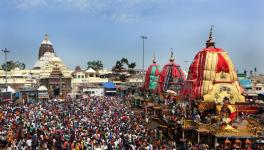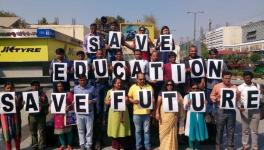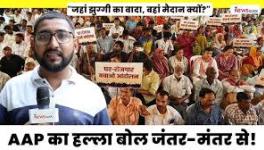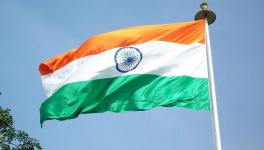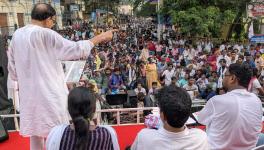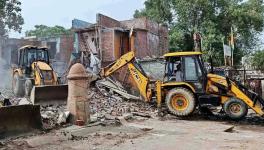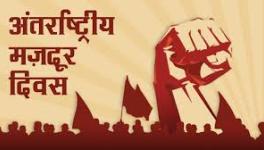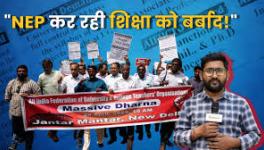Karnataka to be Gujarat of the South?
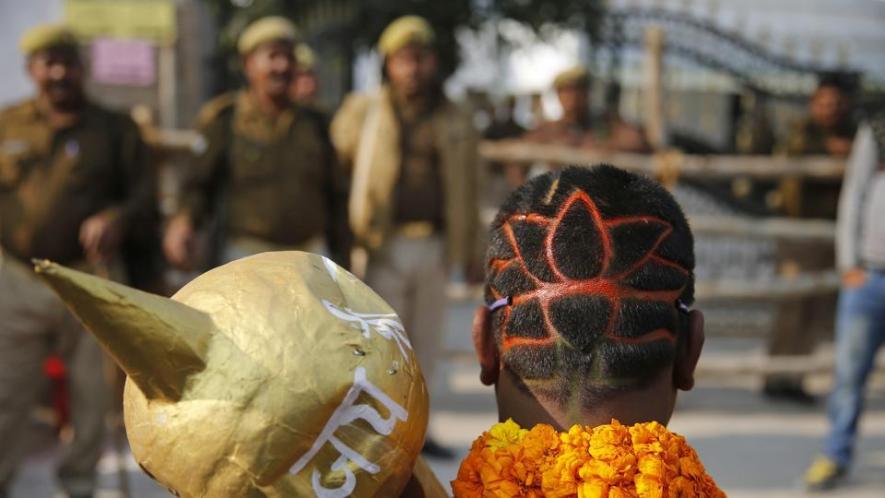
Image Courtesy: Hindustan Times | For representational purposes only
The Karnataka State Assembly elections are fast approaching. These elections in the Congress-led state are going to be crucial for every contesting political party. The BJP kicked off its Karnataka campaign with another one of their infamous ratha yatras. For the most of the Parivarthana Yatra, which is about to come to an end, the BJP blamed the Congress for all the problems in the state and expounded on all the ways in which the BJP’s agenda was better (it isn’t “development” this time around). Amit Shah, while inaugurating the yatra, had said that the Parivarthana Yatra was not concerned with a change in the government but with an overall change the society of Karnataka. A month into the Yatra, Karnataka MP Anant Kumar Hegde declared that the BJP, once it came to power, would change the Constitution of India. One has to wonder what this “change” means to the BJP and Amit Shah.
The BJP is determined to win this election in Karnataka. Their prime strategy, from the beginning, has been communal polarisation. In the run up to the 2014 Lok Sabha elections, BJP had used “development” as its prime agenda during the campaign. But, as Swati Chaturvedi commented, “When thin attempts at headline management and appeals to vikas (progress) don’t work, the BJP instinctively switches to its default mode – communal polarisation.”In light of the communal riots and violence in the state of Karnataka, the Alternative Law Forum (ALF), Bangalore, reminded us, “What happened in Gujarat was not a knee jerk spontaneous reaction, as the Sangh Parivar makes it out be, but an implementation of reasoned, well planned strategy on a ground that was continuously being prepared for it. It is in this light, therefore, that one must understand the threat of the fascist forces that ‘Karnataka will be the Gujarat of the South’.”
This article is an analysis of the BJP and the Sangh Parivar’s involvement in various communal riots that Karnataka has witnessed so far. How is BJP, along with the Sangh Parivar, going to make Karnataka its stronghold? What is their strategy for winning in the state?
According to a report carried by the Times Of India, published on 30 August 2016, Karnataka is the third-most communally sensitive state, with 291 recorded cases of communal violence in three and a half year.; Another report in The New Indian Express, 31 August 2016, claimed that Karnataka stands second in communal violence. R S Deshpande, former director of the Institute of Social and Economic Change, Bangalore, speaking to The New Indian Express, said, “As a political observer, I don’t see why there should be a reason for the spurt in communal riots in the state. There is no reason why the political atmosphere needs to be polarised. It may be because of the state’s strong reporting system. I can say that in the recent past we have seen a few more riots than before. This is in retraction to the national political scene.”
As Deshpande says, no one knows “...why there should be a reason for the spurt in communal riots in the state. There is no reason why the political atmosphere needs to be polarised.” The BJP government that came to power in 2008 in the state caused much damage to the secular fabric of the state. As Musab Iqbal has argued, “The agenda of their advancement has taken different forms through different means in the state. Direct violence on minorities, cultural invasion, saffronisation of education, discrimination, anti cow slaughter bill, bill on terrorism, attacks on religious places or framing of Muslim youth. The BJP in Karnataka, thus, left behind a script of deep violence that has led to division and hate among communities in daily living. In spite of [not having a] communal history, Karnataka has remained [a] strong [RSS] base.” Through the instances that follow, it will become clear that the incidents of communal violence in the state were choreographed by the BJP and the Sangh Parivar.
RSS and BJP’s Role in Communal Violence in Karnataka:
The ramifications of the Babri Masjid demolition in 1992 and the 2002 Gujarat Pogrom have spilt over time and place. The Sangh Parivar and the BJP, who were instrumental in instigating both the communal riots, have created their own narratives to justify their roles in the violence. According to this narrative, the glorious era of Indian civilisation was destroyed by the muslims, and it is the responsibility of every Hindu living in India to reclaim this past. This narrative of hatred, which goes against the secular values of the Constitution of India, coupled with their history of deception, has resulted in violence in many parts of the country. Karnataka is one of them.
On 10 November 1989, members of the Vishwa Hindu Parishad lay the foundation-stone of the Ram Mandir in Ayodhya. They celebrated the occasion by leading a procession and bursting crackers during a specific hour of the day when a large number of muslims had gathered in a nearby mosque to offer prayers. Soon after, communal clashes broke out in Shimoga, Arsikere Dharwad, and Hubli.
A report put together by ALF explained that people’s religious sentiments are especially sensitive during festivals, and can be easily roused. The BJP and the Sangh Parivar have been quick to use this to their advantage, instigating communal tension during festivals and public celebrations as “...it becomes easy for people to make use of this to move these passions into communal areas.”
For example,
In Kolar in 1990, (1.10.1990) the organisers of Id-Milad had decided to overdo the decorations in the streets. This was noticed by RSS activists and a quarrel broke out. Someone stole a serial light set. The first skirmish started by 10 p.m. The police intervened and dispersed the mob. But the Muslim youth pelted stones on buses and a maruti car with a pregnant woman inside was badly hit. Soon the propaganda work began by RSS/VHP.
They campaigned in the night door to door, organised a meeting the next day where they tried to ferment trouble by deciding to resist any efforts by the Muslims to take out the Id procession. The police entered the meeting and tried to pacify the people, convincing them to not prevent the Id procession.
When this was agreed to, and it was clear that RSS/VHP had failed in their plan, later in the day, an innocent boy was stabbed by RSS activists near Venugopal Swamy temple. This lead to the police imposing curfew immediately. Meanwhile, the stoning of the maruti car the previous night was blown out of proportion and rumours that the pregnant woman was hit and the womb ripped open were spread. The activists thus instigated the rural folk against Muslims resulting in the riots of 1990 and curfew for 78 days.
The BJP and the Sangh Parivar have used similar strategies across the country. Rumours of brutality and lies, that easily evoke heightened emotions among people, are their tools. This was replicated again in the recent communal violence in Uttara Kannada district in 2016. They claimed that Paresh Mesta, who had been killed, was an RSS member and was murdered because of his political affiliations, thereby politicising his murder and giving it a communal hue. Rumours that Mesta’s body had been mutilated were also spread. Contrary to this, according to the autopsy reports and the police, no such thing had happened. But it was too late. The entire district was already gripped by communal riots.
Starting from 1989 to 2017, the BJP and the Sangh Parivar have made sustained efforts to rouse communal sentiments in Karnataka to bolster their larger agenda of a non-secular Hindu Rashtra. Even small disputes were blown out of proportion and given a communal hue by the BJP. For example the incidents in Vokkaleri village (near Kolar) in 1987, Dharwad in 1992, Bidar in 1992, Alland town, a taluk near Gulbarga in 1993, Mulbagal near Kolar in 1996, Chikamagalur and other surrounding areas in 2000, Bangalore in 2000, and Kambripet in Hubli in 2001, got a communal flavour mainly due to the involvement of the party and its think tank, the RSS.
BJP’s Communal Agenda and the Elections
K L Ashok is the general secretary of Karnataka Komu Souharda Vedike (KKSV). KKSV is a coalition of 200 oraganisations who have come together to counter the communalism in the state of Karnataka. K L Ashok, commenting on the ways in which the RSS and BJP trains their cadres to spew communal hatred in the state, observed,
We should remember that the RSS is the brain behind the party; it’s their ideology that is followed. The BJP is just a political front, giving RSS a legitimate way to control the lives of the people. The RSS and the BJP will always work in tandem. From what I have seen, the RSS is on the rise in Karnataka; it is a very disturbing development.
Their strategy is to play with sentiments. They do not talk about economy, society, history, or any such thing. Instead, they talk about “son of the soil” (mannina maga), highlighting the regional and communal differences among people, and necessarily pitting them against each other. Look at Anant Kumar Hegde, or Yeddyurappa, for that matter. You just have to listen to what they say, you will know what their strategy is, i.e., provoking people.
They have factories churning out lies. They can produce any amount of lies to provoke people; that is their only purpose. As Ambedkar had predicted, this is what happens when brahminism and crony capitalism comes together. Corporations of oppression are setup to further oppress the oppressed.
Commenting on the election campaigning in the state, Ashok said,
Preparations have begun. It’s as if they’ve decided to stand on the graves of the minority communities. They are openly being communal. For example, recently in December, they attacked the Bababudangiri shrine and even destroyed a few tombs in the premises.
Development has been left to rot; it is forgotten. Their brains are as dated as their ideology. They think they can get a bag full of votes by making people kill each other, but people see through their strategies and tactics. The people are not happy with them.
Get the latest reports & analysis with people's perspective on Protests, movements & deep analytical videos, discussions of the current affairs in your Telegram app. Subscribe to NewsClick's Telegram channel & get Real-Time updates on stories, as they get published on our website.









